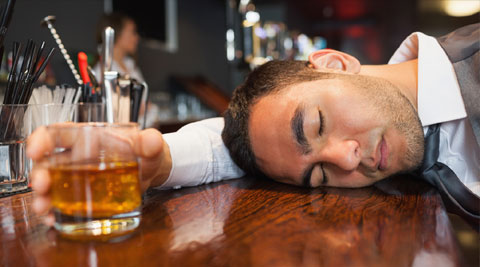Drinking impairs night vision
Alcohol deteriorates the optical quality of the image we see because, it disturbs the tear-film that covers the surface of the eye.
 Researchers from the University of Granada in Spain found that alcohol deteriorates the optical quality of the image we see | Source: Thinkstock Images
Researchers from the University of Granada in Spain found that alcohol deteriorates the optical quality of the image we see | Source: Thinkstock Images
Alcohol consumption markedly impairs night-vision by increasing the perception of halos – luminous circles – and other visual night-time disturbances, a new study has found.
Researchers from the University of Granada in Spain found that alcohol deteriorates the optical quality of the image we see because, among other things, it disturbs the tear-film that covers the surface of the eye.
Ethanol from alcoholic drinks passes into the tear and disturbs the outermost layer of the tear-film – the lipid layer – facilitating the evaporation of the aqueous part of the tear.
In an eye with a deteriorated tear-film, the quality of the image that forms in the retina also deteriorates, researchers found.
In a study published in the international Journal of Ophthalmology, the authors evaluated retina-image quality and night-vision performance following alcohol consumption in a sample of 67 subjects.
To assess visual performance in low-illumination conditions, the researchers used a visual test known as a “halometer,” developed in the Laboratory.
This enabled them to quantify the level of night-vision disturbance in the form of, say, halos around bright lights, perceived by the subjects.
The results showed that following alcohol consumption, the perception of halos and other night-time visual disturbances increases and the optical quality of the image the eye produces deteriorates.
The deterioration in vision is significantly greater in subjects with breath alcohol content over 0.25mg/litre, the legal limit for driving recommended by the World Health Organization, researchers said.



- 01
- 02
- 03
- 04
- 05
























